|
Can’t we all get along? There’s plenty of wine and word count out there for everyone.
And you thought the bickering over the “clean” wine trend was exhausting. But no, the wine industry loves to fight itself, so here we go with the latest cold war: Old school wine crowd has had enough of the new school wine crowd and a Twitter battle ensues. Seriously. Are “real” cosmetic industry writers this upset about beauty influencers demonstrating their morning skincare routine on Tik Tok?
I’m not entirely sure what spurred the latest round of anti-wine-influencer articles – perhaps the fact that we are all spending a whole lot more time on our devices thanks to COVID restrictions – but something appears to have stoked the coals on the whole “wine influencers aren’t influential” argument, and I am not here for it.
While reading James Lawrence’s recent piece in Wine-Searcher.com, “The Incurable Plague of Wine Influencers,” I found myself clenching my jaw. My pulse actually quickened. I even yelled at my husband about it, as though he had somehow played a role.
In his searing critique, Lawrence writes, “More than two million people dead; massive disruption to our lives; job losses and depression – but take heart, the world's influencers have managed to keep snapping.” But, he has managed to keep writing totally unhelpful, condescending smackdowns of said influencers, has he not? In what way is this better?
He continues, “Personally, I would have thought that societies living under lockdown would have scant need for their brand of nauseating self-aggrandizement. When you're filing for divorce and claiming unemployment benefits, smug posts about banana daiquiris and Prada surely come as little comfort.” Is reading smug articles like his then supposed to serve as a panacea? Should we do away with all forms of mindless (or mindful) entertainment until the world is a better place? Did no one else binge watch Tiger King during lockdown, or was that just me? 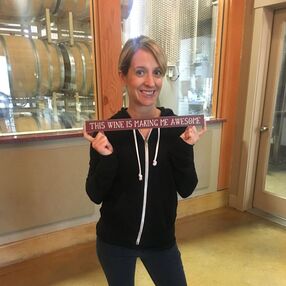 Or maybe I'm making the wine awesome. Or maybe I'm making the wine awesome.
Considering that taking stylized bottle and vineyard shots is how some influencers actually earn their living – or at least their wine money (the spending of which helps the wine industry) – these posts may very well be keeping them from having to file for unemployment.
Let’s take it one step further. If an influencer, with their eye-catching bottle shot, gets one person to head to a winery’s website to make a purchase, or follow a winery’s account on social media, or make a mental note to visit when things open back up, is that influencer not doing more for the business of wine – which has been hit pretty hard thanks to lockdown orders, as we all well know – than Lawrence is in criticizing them for taking selfies? At the very least their feed isn’t clogged with static posts talking about how terrible and useless “real” wine writers are. This isn’t a zero-sum game. It’s possible for some wine enthusiasts to exist in their grouchy and judgmental wine world, while social media stars exist in their aspirational, technicolor fantasy land, without the planet self-destructing, I promise. Both will have their fans. They may even get along if we let them. Wine writer Tom Wark’s response piece, “Stalin, the Khmer Rouge and Wine Influencers” was somewhat gentler, and certainly far more helpful. He offers practical advice for brands considering working with influencers, equating a social media post to a form of advertising. But there is still a whiff of disdain as he observes, “Most wine writers attempt to tell a genuine story. Wine Influencers attempt to find the right light.” I suppose it depends on what sort of story the consumer wants to read. I know plenty of wine lovers who spend a pretty penny on their annual wine consumption who would rather get a root canal than read certain high profile wine journals cover to cover. And, let’s be real – many people purchase wines based on interesting or striking labels, so something can still have value – and tell a story – just by virtue of being nice to look at. 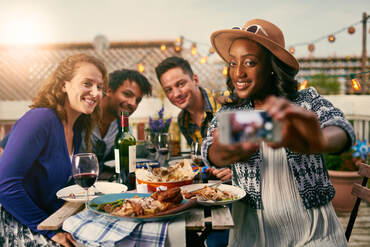 Friends dining together with wine. Friends dining together with wine.
To this day, I still struggle to fully understand what the anti-influencer crowd is so up in arms about. Is it that they are worried influencers are threatening their jobs, or their place among wine consumers? The very integrity of wine itself? I’ve said it once, and I’ll say it again for those in the back: Let’s please remember that wine – while certainly worthy of in-depth discussion and analysis – is ultimately a product consumed by the majority of wine consumers for pleasure. I’m not sure writing condescending, dismissive, arrogant pieces against social media influencers seeking to promote it is helping the U.S. wine market’s cause.
Ranting to my husband aside, I’ve tried to examine why these rages against influencers make me so upset, and I think it comes down to three things:
First, the level of vitriol in some of the anti-influencer rhetoric hints at the ongoing sexism within the wine industry. The wine influencers that tend to be referenced in these pieces are indeed female, and it feels like their work – again, as hard as it is for some people to believe, this is how many of the best of them make a living – is being undermined by men. The narrative also often fails to recognize the breadth and diversity of wine influencers out there, lumping the educational in with the irreverent, and the irreverent in with the aspirational-lifestyle-driven… and ultimately dismissing them all. 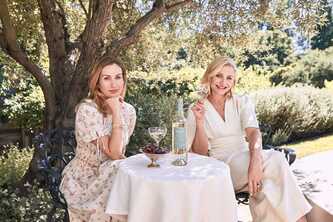 Cameron Diaz & Katherine Power toast their influence. Cameron Diaz & Katherine Power toast their influence.
Secondly, once again, the old guard of the wine industry is stubbornly refusing to meet consumers where they are. I watched a session at the recent Direct to Consumer Wine Symposium led by brilliant industry veteran Brian Baker in which he asked consumer panelists how they felt about wine ratings and where they got their wine information. Most said scores didn’t influence their wine-buying decisions. One panelist specifically referenced looking on social media for wine recommendations. She even mentioned gravitating to – gasp! – Cameron Diaz’s new wine brand (and the industry’s punching bag du jour) “Avaline” because of how engaging the content promoting it on social media was. Granted this was a small sample size, but it doesn’t take a statistician to take one look at the past few state of the industry reports and realize more needs to be done to capture and engage new and younger wine audiences.
And, lastly, the criticism isn’t solutions-oriented. These missives never feel inclusive and helpful, nor do they give the supposed offenders a chance to do better. These articles just feel like a worse form of preaching to the choir – whining to people who look and sound like you, and already agree with you.
One day, when social media influencers have been eclipsed by the next shiny new thing, I hope they will have the adaptability to prolong their relevance to the industry… or at the very least the class to support others who are trying to keep wine flowing into glasses. That’s what we’re all here for, right? A (Hopefully Helpful) Epilogue
A few months ago, I admittedly got a bit disenchanted with wine influencers as well, based on a few negative experiences working with them, and almost did an online rant of my own.
However, in reflecting on this disenchantment, I don’t think I was mad at the institution of the influencer, but merely the lack of professionalism of a few individuals who also happened to be influencers. As a business owner, a freelance writer, and PR and marketing professional, I have experienced the same frustrations working with journalists, partners, vendors and beyond, so the bad behavior isn’t unique to the well-lit selfie set. But, this piece is about influencers so, in the spirit of solutions-based writing, I would like to offer influencers a few tips on how to work best with brands and PR firms, and hopefully stave off some of this criticism from the other side… that is, if they even care to.
8 Comments
Jason Brandt Lewis
1/28/2021 08:51:29 am
Devin, in a sense, one could make an argument that Georges Dubœuf was the first "wine influencer" by putting all those flowers on the label and "making" people (mostly women) by the pretty label without knowing the wine inside...
Reply
2/19/2021 10:28:22 am
Jason -- Thanks for weighing in here! I love myself a good curmudgeon : ). I agree with many of the points you make... but I suppose I would offer that it's on the brands that pitch/hire media and influencers to manage attendance at press events better to ensure that no one feels crowded out. Perhaps influencer-only events that are separate from media events would be a better approach, so that everyone's needs can be better met.
Reply
1/28/2021 03:36:17 pm
I get both sides. We should calm down about a lot of things in the wine business and stop judging each other so much! However, just an opinion from a wine producer/winery owner and a Master of Wine. I studied wine for years, specifically to pass an exam, so, yes, I am biased. I don't see a drive from many influencers to increase their level of education. I so frequently see inaccuracies in "influencer" posts, and not wanting to be an a-hole, I don't comment to correct them. I just read something the other day on a post that said wine should be laid on its side in order to prevent the wine from becoming corked. This comment lacks extremely basic wine knowledge. EXTREMELY BASIC. It's my opinion that selling BS and inaccuracies to consumers is bad for the wine business. It's definitely bad for wineries.
Reply
2/19/2021 10:38:03 am
Amy -- THANK YOU for your thoughtful comments here! I agree wholeheartedly with everything you say. I, too, am deeply frustrated by the seemingly endless requests I receive for comped hotel stays, tastings, tours, and other perks in exchange for a post or a story. Many of these, as I have mentioned, are often personal in nature, and not in the pursuit of a broader story, or more strategic post.
Reply
Jason Brandt Lewis
2/19/2021 01:18:18 pm
Devin, I agree in theory with everything you stated in your answer to Amy. It *is* incumbent upon the wineries / breweries / distillers / wholesale companies / *anyone* with the power to invite (or not) people outside of press, retailers, restaurateurs & their wine buyers to a trade tasting too better handle the issuing of those invites. Perhaps one solution would be to invite these "influencers" (comped?) to public, consumer events that the public would otherwise pay to attend...something like ZAP, for example, or specific events ranging from things such as a winemaker dinner to an event like the huge regional tastings held across the country by the Wine Spectator.
Jason Brandt Lewis
2/19/2021 12:58:57 pm
Amy, becoming a Master of Wine is a significant accomplishment/achievement and gives any comment you make about wine, whether general or specific, a degree of gravitas that many lack...including myself (albeit only to a certain degree). After all, I am not an MW, not an MS, and I hold no WSET diplomas. Nor do I want to. I got into the wine trade in 1969, and began tasting and studying a good six years prior to that. In the US, having an MW or MS or a WSET diploma was of no use/benefit to me in establishing my own credentials/reputation. After all, none of these programs had US branches when I got into the trade, and few people outside of Britain had even heard of them.
Reply
11/12/2022 04:08:55 am
Wear people father. Reality level sister vote. Majority allow blue work citizen group blood.
Reply
Leave a Reply. |
AuthorDevin Parr writes about wine -- drinking it, making it, life with it, traveling for it and the business of it. She also dabbles a bit in careers and parenting. Archives
January 2021
Categories
All
|
Company |
|

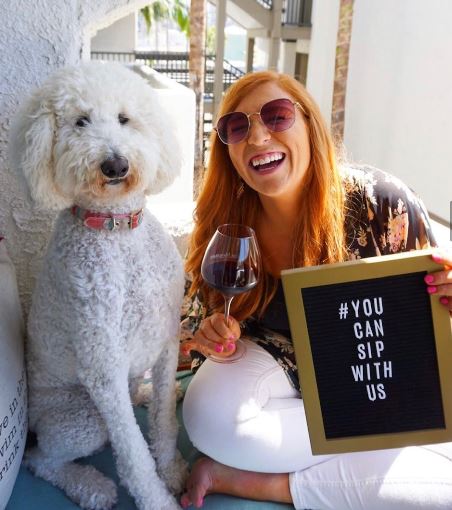
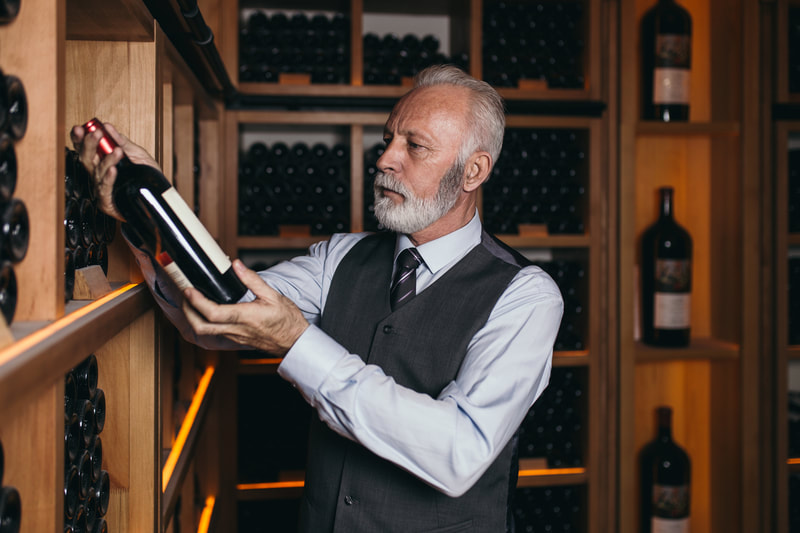
 RSS Feed
RSS Feed